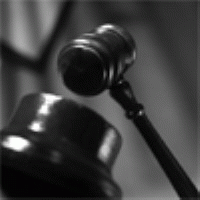On Tuesday, the California Supreme Court will issue its ruling on the case questioning the validity of Proposition 8, a voter-based initiative that denies equal treatment under the law to homosexuals in the realm of civil marriage.
Pictured on top row, from left to right are Associate Justices Kathryn Mickle Werdegar, Carlos R. Moreno, Joyce L. Kennard, and Marvin R. Baxter. On bottom from left to right: Associate Justice Ming W. Chin, Chief Justice Ronald M. George, and Associate Justice Carol A. Corrigan.
In the consolidated case, Strauss v Horton, the court directed the parties to brief and argue the following issues:
In considering this, the Q community regards Proposition 8 a revision, rather than an amendment to the California Constitution.
(2) Does Proposition 8 violate the separation of powers doctrine under the California Constitution?
This question been long settled per this 1943 Supreme Court case where Justice Robert Jackson dissented (though this is now the law):
"The very purpose of a Bill of Rights was to withdraw certain subjects from the vicissitudes of political controversy, to place them beyond the reach of majorities and officials and to establish them as legal principles to be applied by the courts. One's right to life, liberty, and property, to free speech, a free press, freedom of worship and assembly, and other fundamental rights may not be submitted to vote; they depend on the outcome of no elections." (emphasis added)As to the third question:
Justice Robert H. Jackson (1892-1954), U. S. Supreme Court Justice Source: West Virginia State Board of Education v. Barnette, 319 U.S. 624 (1943).
If Proposition 8 is not unconstitutional, what is its effect, if any, on the marriages of same-sex couples performed before the adoption of Proposition 8?
Retired California civil rights attorney, John Mortimer, doesn’t believe Proposition 8 will be found Constitutional. But if it is, he told me:
“Those marriages remain valid because they were valid as per a Supreme Court ruling before the Constitution was revised. Retroactive application is a very complicated legal issue, but I feel sure it would not apply here.
“If the court were to allow Prop 8 to stand the court commits suicide. It would mean that the court puts a bullet to its own head in that a tyrannous majority could always be able simply finance a voter initiative to rally the angry ignorant villagers with pitch forks. It would be the end of an independent judiciary as we know it in California.”
The states of Iowa, Vermont, Massachusetts, and Connecticut recognize same sex marriage for its citizens.
A national Day of Decision action is being organized in anticipation of Tuesday's decision. State organizers plan to protest or celebrate within twenty-four hours of the decision being published.





